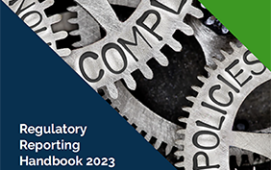
FINBOURNE Technology has integrated with Claude, the large language model developed by Anthropic, via the Model Context Protocol (MCP), enabling secure, agentic AI across investment operations. The integration allows AI agents to access live investment data, automate workflows, and perform real-time actions while maintaining enterprise-grade governance, compliance, and auditability.
Introduced in late 2023, MCP is an open standard designed to connect AI systems to enterprise tools and data in a secure and structured way. It enables AI agents to operate with full, live context across different systems by standardising how data, permissions, and control are exchanged. For investment firms operating in highly regulated environments, MCP offers a foundation for using AI safely and effectively, without compromising on entitlements, data lineage, or audit requirements.
The integration addresses persistent limitations of legacy AI models in financial services, which have typically relied on data warehouses and retrieval-based architectures. These systems often lack the flexibility, freshness of data, and operational context required for meaningful automation, especially under regulatory scrutiny.
“At the core of our platform is the ability to represent complex financial constructs,” explains Tom McHugh, CEO and co-Founder, FINBOURNE, in conversation with TradingTech Insight. “We understand legal entities, how trades roll up into positions, how to build a Chart of Accounts or handle financial reporting. These are things people often try to do in data warehouses, but they just don’t work reliably there. You end up with incorrect positions, inaccurate tax accounting, or invalid yield calculations. What we’ve done is expose all of this through an API-first architecture, accessible using familiar syntax like SQL or Python, so data scientists and machine learning engineers can work directly with live operational data.
“MCP is a real shift for us. Historically, you’d have to extract the data, vectorise it, run RAG processes, maybe train a model, and by then, your model was out of date. With MCP, the model can directly query the operating layer in real time, and crucially, we get an audit trail. If a model asks what’s in the portfolio and gets a number back, we can show exactly what was asked and how it was answered.”
By incorporating Claude through MCP, FINBOURNE enables clients to deploy AI agents capable of reasoning over complex investment data and executing multi-step workflows in real time. FINBOURNE’s platform, designed with live operational data at its core, exposes critical financial entities such as positions, transactions, and trial balances through a unified API layer. It also connects seamlessly to internal and external systems, including custodians, Salesforce, and Snowflake, allowing orchestration of complex processes across the investment lifecycle.
“We’ve built a framework to audit what goes into and comes out of the model,” says McHugh. “For example, we can constrain models to respond in a SWIFT message format, even if the underlying API response was a trade instruction. In financial services, you can’t rely on probabilistic outputs. ‘Probably correct’ isn’t good enough. But if you treat models as translators that call deterministic APIs, with built-in entitlements and traceability, then you get something that’s actually usable in production. It’s a quiet revolution, but one that makes powerful AI genuinely operationally viable.”
This integration makes it possible to calculate real-time performance and risk metrics, automate workflows spanning multiple systems, and carry out actions with full entitlement checks and data lineage, within a secure and compliant operating model. It reflects a broader shift towards practical, context-aware AI in investment operations, with open standards like MCP playing a key role in enabling adoption at scale.
“MCP is driving a fundamental shift in how large language models interact with enterprise tools,” observes McHugh. “It opens the door to secure, human-AI collaboration, where agentic AI can operate within existing controls, effectively behaving like a trusted member of the team. These kinds of shifts don’t happen often in technology, perhaps once a decade. I’d argue it’s even more significant than the introduction of REST, because the adoption curve is much shorter. With REST, you had to educate developers and rewrite code, so uptake took years. MCP won’t require anything like that. But realising its full potential depends on having the right architecture, along with a commitment to openness and security. That’s where we see our strength. And we’re excited to help define what’s possible in this next era.”
Subscribe to our newsletter




